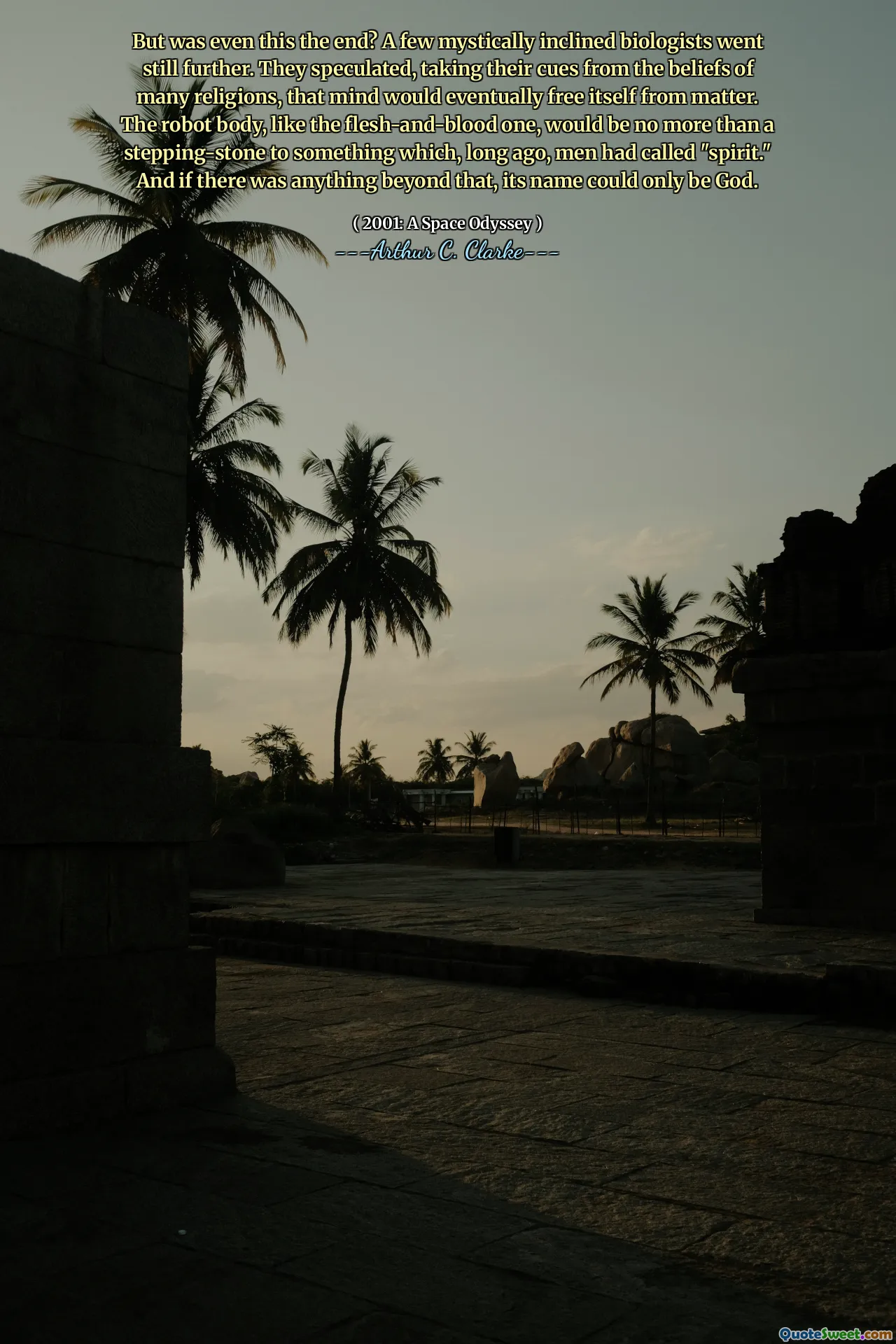
But was even this the end? A few mystically inclined biologists went still further. They speculated, taking their cues from the beliefs of many religions, that mind would eventually free itself from matter. The robot body, like the flesh-and-blood one, would be no more than a stepping-stone to something which, long ago, men had called "spirit." And if there was anything beyond that, its name could only be God.
This passage probes the profound intersection of science, spirituality, and the nature of consciousness. It reflects a fascinating dimension of human curiosity and philosophical inquiry—whether our minds are purely products of physical processes or if they can transcend material existence. The notion that mind might eventually liberate itself from matter suggests a future where consciousness could exist independently of the biological body, perhaps through technological or spiritual evolution. This idea echoes longstanding religious and metaphysical beliefs about the soul or spirit as a non-material essence that survives physical death. Interestingly, the analogy of robots and flesh-and-blood bodies as stepping stones implies a continuum—technology and biology may be stages in an ongoing ascent toward understanding and possibly experiencing the divine or the infinite. The concept that “spirit” and “God” are the ultimate destinations implies a convergence between scientific advancements and spiritual transcendence. Such speculations challenge our current understanding of identity, consciousness, and existence, urging us to consider whether humanity’s pursuit of knowledge could eventually unlock the mystery of the soul. This raises questions about the potential for consciousness continuity post-mortem, the nature of reality, and whether scientific progress might bridge the gap between the material and the spiritual. It’s a reminder of the age-old human quest to grasp the divine, now framed within a futuristic context where biology and technology entwine with metaphysical ideals, hinting at an evolving universe filled with infinite possibilities for understanding ourselves and the cosmos.






